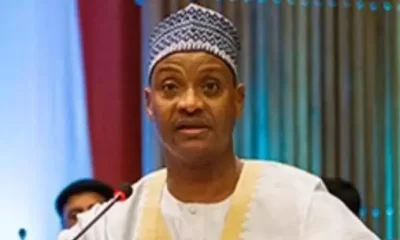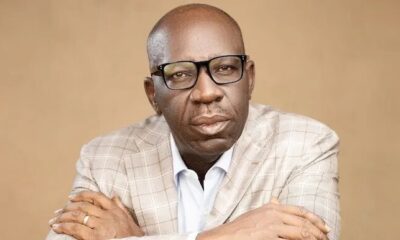Forgotten Dairies
The Coup Of January 15 1966 And The Facts Of History (Part 2) -By Henry Chukwuemeka Onyema
Nothing I have written seeks to justify the January coup. I wish it never took place. I wish the hotheaded young ‘revolutionaries’ had reflected on their line of action or consulted saner heads. The deaths of our leaders that day need not have happened. I wish the British did not bequeath a skewered Nigeria to us upon independence, and the ineptitude of our politicians only worsened things.

I do not take lightly Chief Fani Kayode’s harrowing eyewitness account of the arrest of his father, Chief Remi Fani Kayode, the deputy premier of the Western region. Tears nearly filled my eyes some years ago when I read the personal account of Solapo Ademulegun, the daughter of Brigadier Ademulegun, on how she saw her father killed by officers who used to eat at his dining table. They were led by Major Timothy Onuwuatuegwu who was Nzeogwu’s right hand man in Kaduna. Only a heartless person will justify such deeds before children for any reason.
But Chief Femi Fani Kayode, then a boy of six, could not have known or seen the trajectory of events after Captain Emmanuel Nwobosi and his men took his father away. His account of the gun battle between Nwobosi’s men and loyalist troops who had taken over the Federal Guards Barracks, Ikoyi, does not correspond with the account of Nwobosi himself who in his autobiography ‘1966: The Dark Truth’ wrote that his group after the success of their Western region (Ibadan) operations, walked right into the waiting arms, as it were, of Ironsi’s loyalist troops at the Federal Guards Barracks. The barracks had been the operational headquarters of the plotters in Southern Nigeria but Ironsi and his officers like then Colonel Yakubu Gowon had quickly turned the tide. Chief Remi Fani Kayode was freed by the loyalists.
Ademoyega wrote that Lieutenant Colonel Adekunle Francis Fajuyi, the assassinated governor of the Western region under Ironsi, had sympathy for the coup and contributed ideas. In Ademoyega’s words ‘it shall stand eternally to his credit that although the coup took place while he was away on leave, he rose for the revolution and stood firmly by its principles even until he breathed his last.’ Ademoyega’s view comes from the position of an insider. But it does not necessarily prove that Fajuyi was involved in the coup. There were many military officers who, though not involved in the January coup, were dissatisfied with Nigeria’s situation six years after independence, and desired a change. But the plotters of the July 29 1966 coup killed Fajuyi because they thought he orchestrated the coup through the Battle Group course for captains that took place in Abeokuta in September 1965 under his command. Captain Ben Gbulie, who took part in the coup under Nzeogwu, was a course trainee. Ademoyega was one of the course trainers under Fajuyi’s command. Only he and Gbulie were direct January 1966 coup participants involved in the controversial course. We can read up Wole Soyinka’s ‘The Man Died’ for more information on Fajuyi’s disposition towards the January coup and its plotters.
If the January coup was an Igbo plot why did the plotters plan to free the jailed Opposition Leader, Chief Obafemi Awolowo, and install a government under his leadership or an administration in his name? Given the intense political and ethnic rivalry between Awolowo, a Yoruba, and Azikiwe, an Igbo, and their parties at the time, is it believable to assume that the likes of Nzeogwu and Ifeajuna would have backed Awolowo? Is there really evidence that they had plans for Awolowo? We may ask ourselves this question if we can remove tribal sentiments for once: why would the Yoruba and other non Igbo participants in the coup risk their lives in an operation as dicey as a coup just to further an Igbo agenda at a time political ties between them were strained?
Fortunately there is historical evidence that the plotters planned to free Awolowo and install him in power or rule in his name. First is from the plotters themselves such as Ademoyega, Nwobosi and Gbulie who revealed this in their books and interviews. Then one can read ‘The Forgotten Documents of the Nigerian Civil War’ by Odia Ofeimun. Mr. Ofeimun, a noted author, was Awolowo’s private secretary. The military historian, Max Siollun, also gave insight into the subject in his 2009 classic ‘Oil, Politics and Violence: Nigeria’s Military Coup Culture (1966 to 1976)’. In our contemporary tribalistic society it sounds outrageous that Igbo soldiers would put their lives on the line for a Yoruba politician. But back then many radical young Nigerians believed in Awolowo as the face of a new Nigeria, given his solid achievements in the Western region. They saw him as a hero in the face of his perceived persecutions at the hands of the Balewa government. All this does NOT imply that Awolowo, locked up in Calabar Prison, sponsored or supported or called for the January 1966 coup. It is doubtful if Awolowo, though desirous of political change in the country, would have accepted to be the face of a military dictatorship. The plan to free Awolowo was to be implemented by Captain Udeaja who would fly to Calabar on the morning of the coup in a Nigerian Air Force plane specially arranged for the mission through the coup plotters’ Air Force liaison man, Major Nzegwu (not Nzeogwu). The rapid counter coup measures under Ironsi’s command botched the plan. Lieutenant Colonel David Ejoor, acting on Ironsi’s orders, flew to Enugu, took charge of the First Battalion stationed there and sent a detachment of soldiers under the command of Lieutenant Yohanna Kure to Calabar to stop any attempt to free Awolowo from prison. This information is in public domain.
Finally, while those who want to hang the January coup on the necks of the Igbo can debate and interrogate the roles of General Ironsi, the army GOC, and Colonel Emeka Ojukwu, then commander of the Fifth Battalion at Kano during the coup, certain facts remain indisputable. One: they are Igbo. Two: they, along with many other loyal Nigerian officers from different parts of the country, scuttled the January coup. Three: the coup plotters despised Ironsi, and Nzeogwu openly regretted that Ironsi was not shot by his colleagues in Lagos. Four: what transpired between Ironsi and the rump of the cabinet after the coup was crushed is totally separate from the coup itself.
Nothing I have written seeks to justify the January coup. I wish it never took place. I wish the hotheaded young ‘revolutionaries’ had reflected on their line of action or consulted saner heads. The deaths of our leaders that day need not have happened. I wish the British did not bequeath a skewered Nigeria to us upon independence, and the ineptitude of our politicians only worsened things. But it is ahistorical and wrong to blame the Igbo for the actions of a small group of soldiers who shot first and thought later. Why do we go on tarring the Igbo with an unjustified brush fifty-eight years after the coup, when we can find out the facts for ourselves? Do we tar the peoples of Plateau and Benue for the Dimka coup against General Murtala Muhammed? Do we tar the Niger Delta/Benue peoples for the Gideon Orkar/Great Ogboru/Nyiam coup against Babangida in 1990? I know there are people who are determined to perpetuate this narrative for their ethnic and political agenda, whose disposition towards a certain ethnic group will not allow them, seek the facts necessary for national closure. This article is not for them. It is for those who want a new Nigeria free from the monsters of the past.
May the souls of our heroes and heroines rest in peace. Amen.
Henry C. Onyema is a professional historian and author of the novella ‘In Love and In War.’ Email: henrykd2009@yahoo.com



















